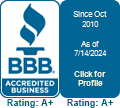A touchy subject
Using essential oils internally is a controversial subject, and for good reason. High quality essential oils have many amazing benefits and uses. Several essential oils have strong anti-bacterial properties that can be helpful with infections. My life has changed for the better because of these amazing plant essences. Most essential oil uses are used for skin application (like Tea Tree oil for MRSA), air diffusion or for massage. Some oils (like Oregano for MRSA), have a history of being used internally, especially for infections.

7 reasons why the internal use of essential oils is not something to rush into:
- Some essential oils are from plants or parts of the plant that are toxic to people and never should be taken internally.
- Even oils that are supposedly safe to ingest can be polluted with toxic and carcinogenic chemicals. These chemicals are often used to extract the oil from the plant and you won’t find them listed on most labels.
- Many oil manufacturers add synthetic chemicals to their essential oils to extend the oil, artificially adjust its content, or to enhance the smell. This makes the oil less expensive but also reduces the medicinal benefits.
- Labeling of essential oils as “pure” or “therapeutic” doesn’t really mean anything as these terms are often misleading.
- Even oils that are safe to ingest can cause harm if too much is taken, or for too long, or if you have certain health conditions or are pregnant.
- Many oils contain pesticides from the plants, unless the oil source is organic or “wild-crafted”.
- Inexperienced manufacturers may combine different essential oils into blends that form a dangerous concoction you don’t want to consume.
The good news is that essential oils that are truly pure and therapeutic grade can be a God-send for Staph, MRSA and many other Superbug infections when used properly and responsibly.
A long safe history of safe use
The medical use of essential oils is a new concept in the United States. However, many doctors and pharmacies in France commonly prescribe essential oils internally for infections and other diseases. However, this quality of oil is difficult to find in the U.S. and many other countries.
Jane Buckle, RN, Ph.D., author of Clinical Aromatherapy, studied safety reports from using essential oils internally. She discovered that there have been few reports of toxicity over many years of essential oil use by the public and some healthcare providers. These results show that essential oils are generally nontoxic and safe when used properly. Dr. Buckle surveyed documented cases of toxicity for her book and found that few adverse event reports exist for essential oils taken internally. Most of the adverse events reported were due to children ingesting a greater amount than is normally used. Even in those cases, the children fully recovered. (Buckle, J. Clinical Aromatherapy: Essential Oils in Practice. 2nd ed. Kidlington, Oxford: Churchill Livingstone; 2003.)
Which plants are safe to ingest?
How do you know which plant types are safe to ingest? The U.S. Food and Drug Administration (FDA) has a listing of essential oils that are “Generally Regarded As Safe” or GRAS (https://edocket.access.gpo.gov/cfr_2003/aprqtr/21cfr182.20.htm). The FDA considers these oils acceptable additives to food or for cooking. GRAS oils are considered safe for ingesting, but they are not approved to treat diseases. While it helps to know which plants are generally safe, you still must be mindful of added chemicals, solvents or pesticides. As such, I would not use most brands of essential oils internally, even for cooking. I also would never ingest essential oils found at most health food stores.
There are some excellent resources for the internal use of essential oils for support with many different health conditions. The book Medical Aromatherapy by Dr. Kurt Schnaubelt (1998 Healing Arts Press) and his other books contain protocols for internal administration of oils. Dr. Daniel Penoel also has written books about using essential oils internally. You’ll also find that some holistic doctors and Aromatherapists in the U.S. work with essential oils and can help design a safe protocol for you.
Health Freedom
In a nutshell, you REALLY need to know what you are doing before you consider taking oils internally on your own. Better yet, work with a natural physician who understands oils and help you use them.
A growing number of people favor health freedom in the United States. A key belief is that treatment decisions are ultimately the responsibility of the informed patient and that many viable treatment options fall outside the realm of mainstream medicine. Always do your research and consult with your doctor about any concerns or questions. Many people find holistic or natural doctors to be much more informed about medicinal essential oils, herbs and natural treatment approaches.
To your best health,
Michelle
Microbiologist and Natural Health Expert
Author of the Guidebook MRSA Secrets Revealed, which includes 3 chapters devoted to understanding, finding and using medicinal essential oils against infections.





